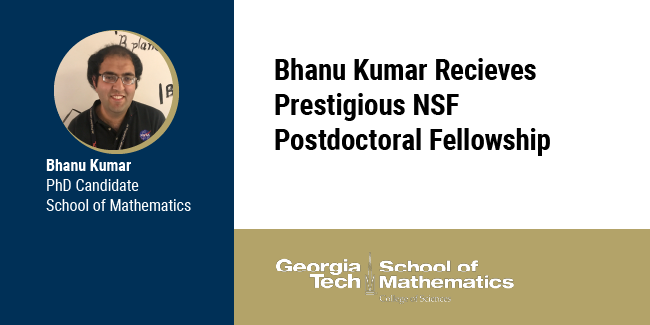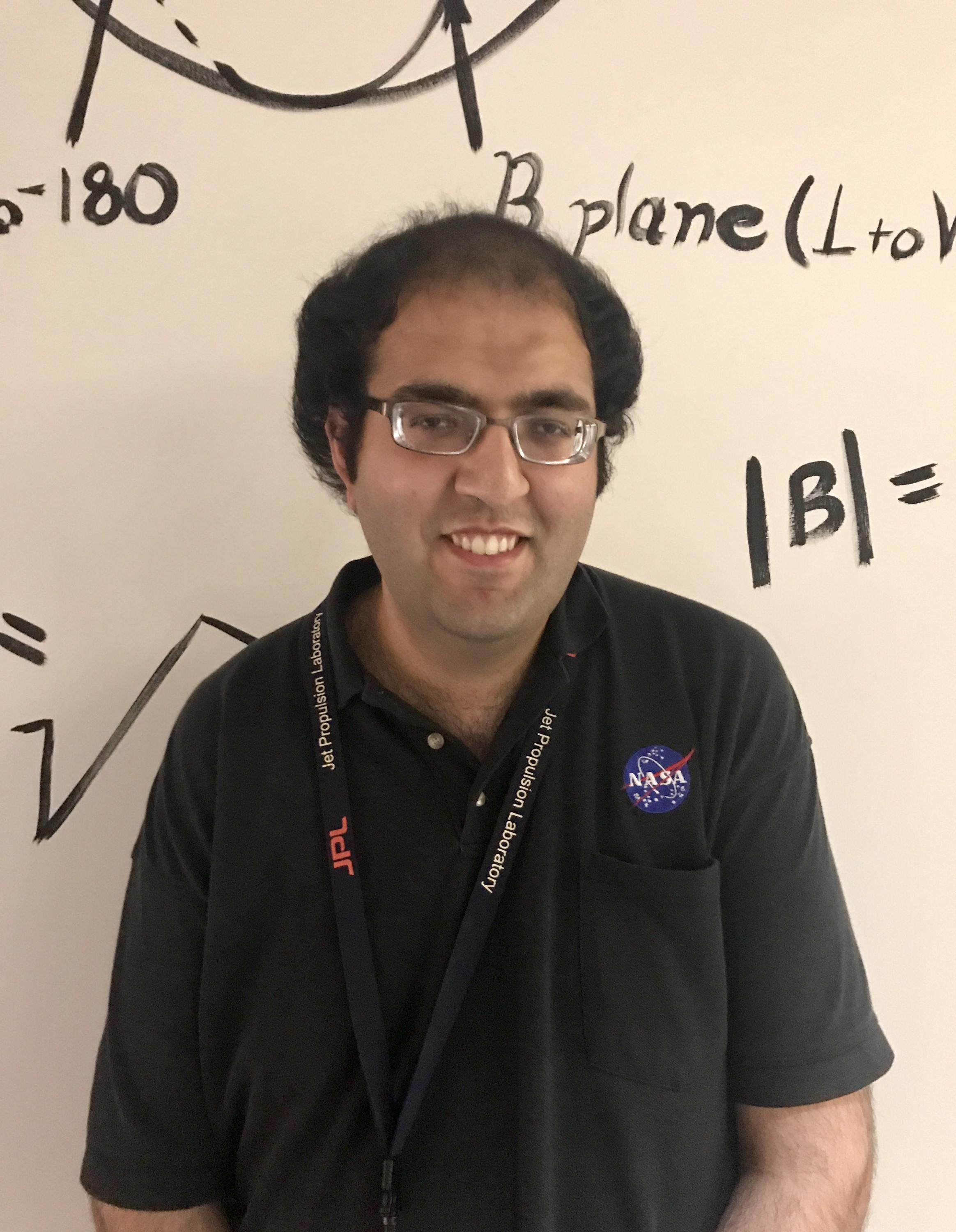- You are here:
- Home
April 3, 2022
Bhanu Kumar has been awarded a NSF Postdoctoral Fellowship for work in dynamical systems applied to celestial mechanics and applied astrodynamics for space mission design.
Bhanu is a Ph.D. candidate and a NASA Space Technology Research Fellow (NSTRF) in the School of Mathematics, working with his advisor Prof. Rafael de la Llave at the cutting edge of the field of dynamical systems. Bhanu also does research as M.S. student in the Daniel Guggenheim School of Aerospace Engineering at Georgia Tech, and as a NSTRF visiting technologist at the NASA Jet Propulsion Laboratory, California Institute of Technology, where he works with his mentor and research collaborator Dr. Rodney Anderson.
Research Interests
At a broad level, my interests lie in the application of tools and results from mathematical dynamical systems theory, both analytical and computational, to various problems in celestial mechanics and applied astrodynamics for space mission design. In particular, there are geometric structures, such as periodic orbits, invariant tori, and stable and unstable manifolds, which govern many of the important dynamical properties of multi-body celestial systems. I am interested in developing fast and accurate methods for computing these objects as well as for investigating the dynamics induced by them. I am also working on applications of these methods to current and relevant problems in astrodynamics, with a current focus on tour design in the Jovian system (although our tools are general and applicable to other systems as well).
-Bhanu Kumar
Previously, Bhanu had been supported by a prestigious NASA graduate fellowship and he has participated in several international conferences in Celestial Mechanics in USA, Italy, and Spain. His advisor, Prof. De La Llave, has also used advanced grants from NASA to help fund travel and to support Bhanu throughout his PhD. An accessible description of Bhanu's research (with some references to more advanced material) can be found in the ProofReader 2020.


